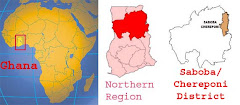This post is in response to an anonymous comment on my Who Loses? -Ethics in Development post. I'm actually quite glad they posted that comment, as it leads perfectly into this sequel post, and the questions raised are great.
In response to the first question, NGOs are accountable to their donors. You hit the nail on the head with your statement that donors "likely demand certain quality/productivity in exchange for [funds]". The problem with this accountability is two-fold.
First, accountability to the donors instead of to the people intended to benefit, draws away from the actual aim of development. Development workers then need to start doing whatever they can to maintain their incoming funds, and thus their jobs. Often, this undermines the very objective of the project in the first place, because to maintain funding "reportable results" are required.
Our trainer Levi, here in Toronto put it perfectly: "If you knew that every month there was a plane ticket for you if you didn't perform, you'd start to put that report in top priority". And this couldn't be more true. By creating such strict reporting formats (which donors do), it shifts the priority away from helping the people, to reporting and staying afloat. It makes me sad sometimes, because so often NGOs are held to the candle to constantly present results and to cut down on administration costs. However, to write the reports and show the results, you need office staff. If hiring an extra secretary to type up reports will ensure you sustained funds in the future, then that takes priority over activities in the field.
The second problem, is these results. The easiest result to report, and to demand; must be quantifiable, must be tangible. I will refer to these numbers as outputs from now on. So it is no longer paramount to achieve the real impact we wish to see on the ground, which is long-term behaviour change, but instead the focus becomes short-term gains. A simple example of this is training. It is very easy to report on how many farmers you trained in water-well maintenance. A great number. However number of farmers trained does not equal number of farmers doing maintenance. It does not equal the number of wells maintained, or the number of farmers gaining access to clean drinking water. So if you return 6 months after the training, and the well is broken, then the whole point of training the farmers was missed, which isn't reflected in the report.
The wrong indicators are useless for measuring successful projects. In fact, it fosters bad development. What you get, is farmers being rushed through haphazard training sessions, just to get the numbers up, all because the field staff are accountable to the donors, not the people.
Alas we come to the million dollar question which you eloquently put as "what would be the best form of accountability for these organizations?" I hate to disappoint the readers, but I don't have the answer. To answer this question, I will give it more thought and I will post this at a later date. Sorry all
Monday, February 18, 2008
Subscribe to:
Post Comments (Atom)



No comments:
Post a Comment